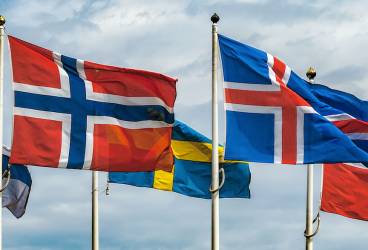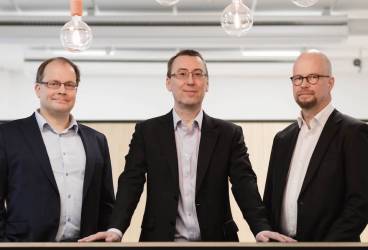Virve, Rakel and Nødnett successfully together

The Barents Rescue crisis management exercise connected the Finnish, Swedish and Norwegian authority radio networks for the first time. The exercise proved that joint talk groups can already be deployed in real life.
History was made in the Barents Rescue exercise in Kiruna, Sweden, on 23–27 September. Three Tetra authority radio networks were connected for the first time in the world. The Finnish Virve, Swedish Rakel and Norwegian Nødnett networks were used. Joint talk groups were established between them, making the international rescue exercise work.
“On a technical level, the exercise was a fantastic success. All functions between the radio networks succeeded as planned beforehand in the exercise. Users from three different countries have now jointly specified some 300 talk groups, and the agreed groups were now tested in practice,” says Peteveikko Lyly, Project Manager at Erillisverkot.

Lyly estimates that international networks can be fully utilised by mid-2020.
“In Finland, radios in vehicles, for example, still need one update. The systems of the most important ambulances and fire engines have already been updated. Other authorities’ updates are still partly ongoing.”
According to Jarmo Vinkvist, COO at Erillisverkot, now that the joint networks and talk groups have been created and tested, they can also be utilised in practice.
“In 2018, for example, Sweden asked EU member states for help in extinguishing its forest fires. Should a similar situation requiring assistance from other countries emerge now, the authorities in the three neighbouring countries could use the joint network to communicate on-site as well,” Vinkvist says.

English as the joint working language
Peteveikko Lyly was at the Barents Rescue exercise the entire week. As all technical preparations had been made in advance, the task of the representatives of Erillisverkot was to be present in the exercise situation and assist, guide and support the participants in the use of radiophones and talk groups, if necessary.
“All of the exercise participants were experienced people and knew well how to use their phones and the new talk groups. No issues emerged during the exercise. Afterwards, though, we received a comment that automatic network change had not been activated in one terminal device and the user did not know how to change the network manually right away,” Lyly says.

English was used as the common language in the exercise so that the group of Russians that participated was able to take part in the discussion. However, Russia does not take part in the network sharing cooperation, so there was a Swedish liaison officer with each Russian group, relaying the information to them.






